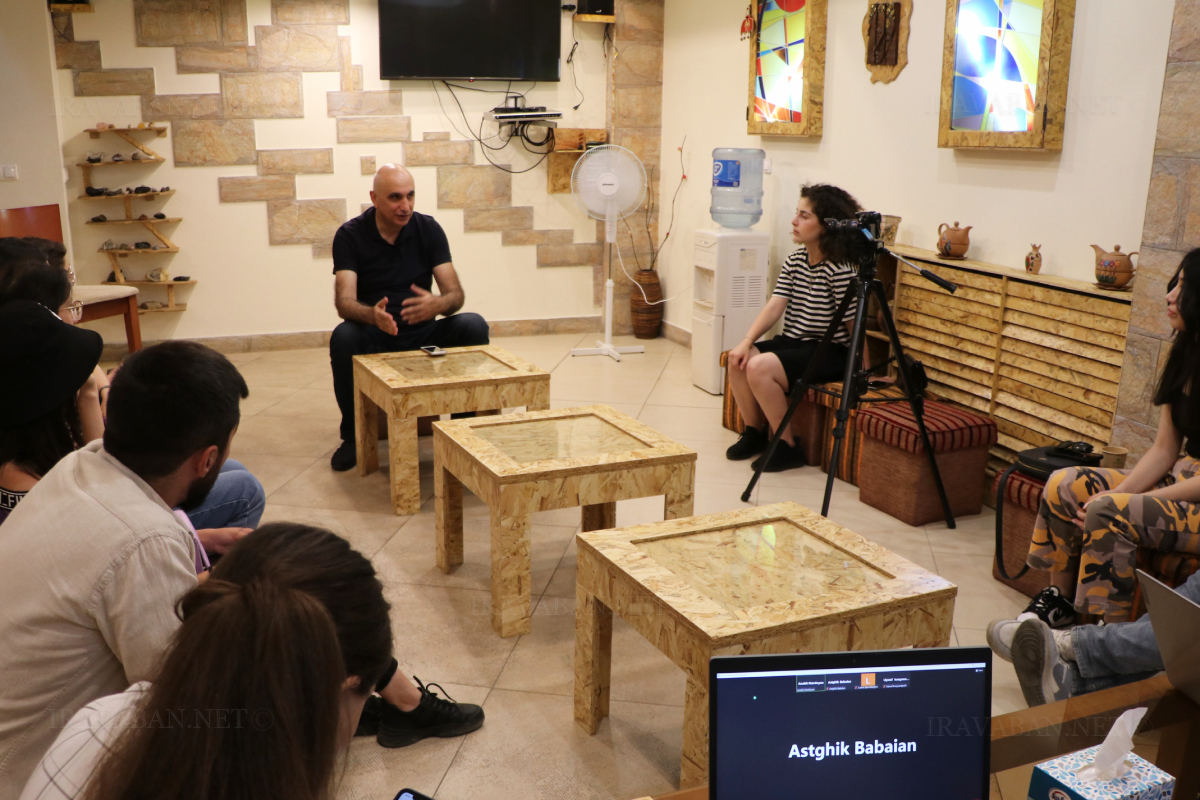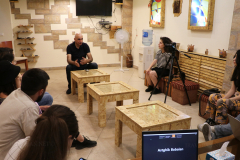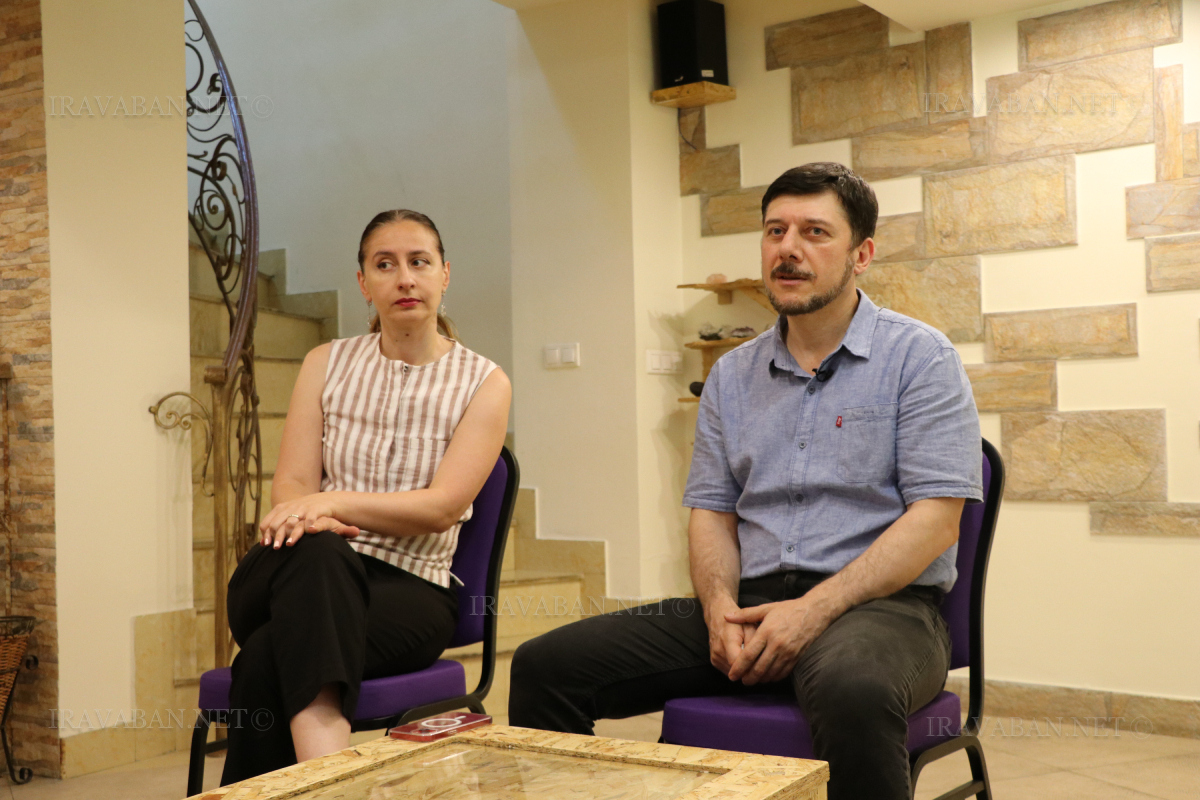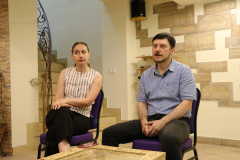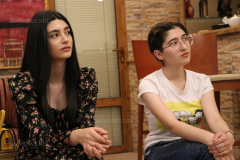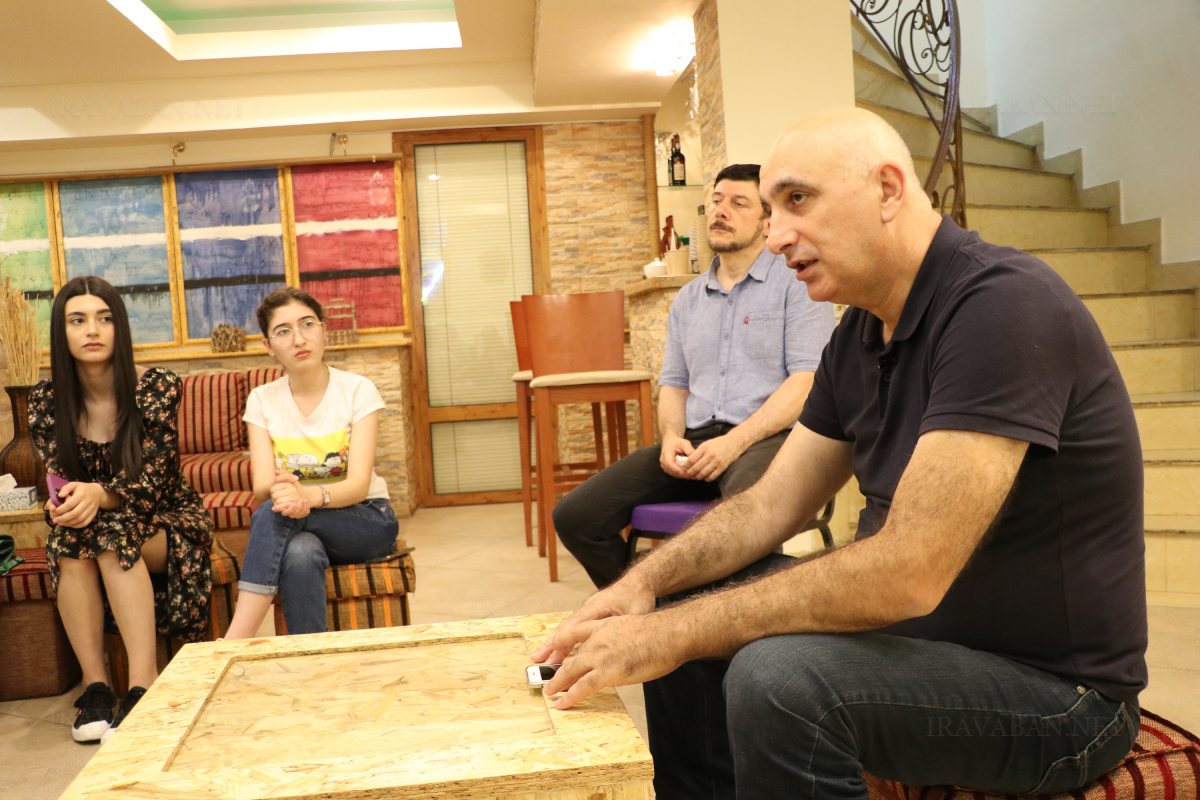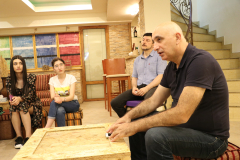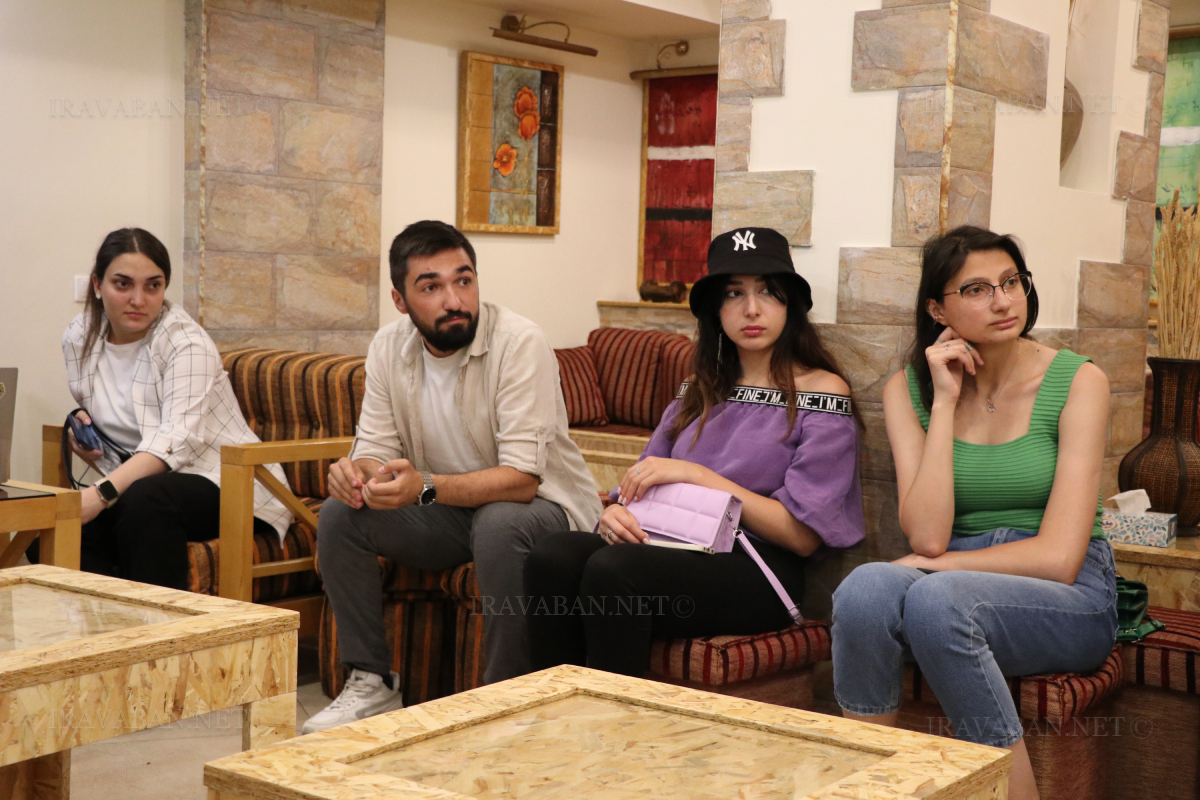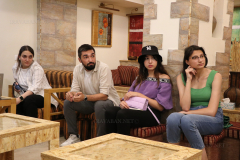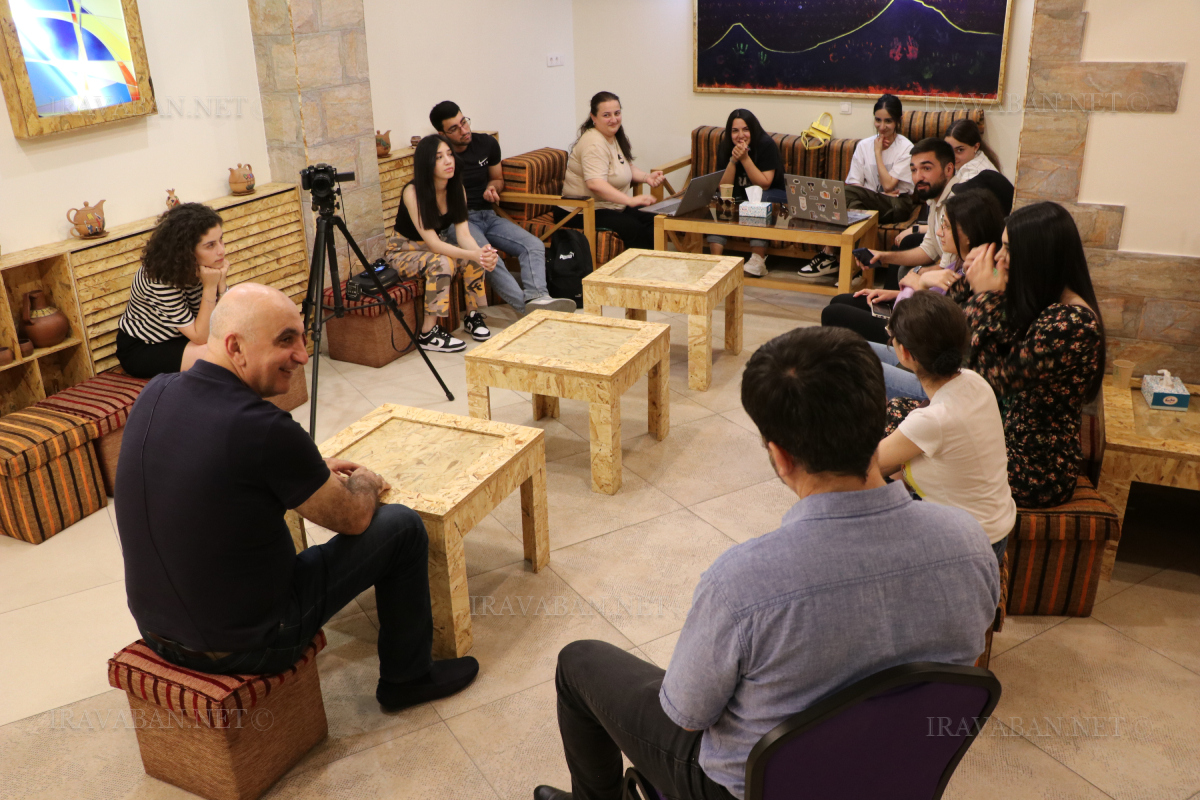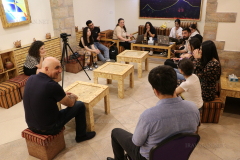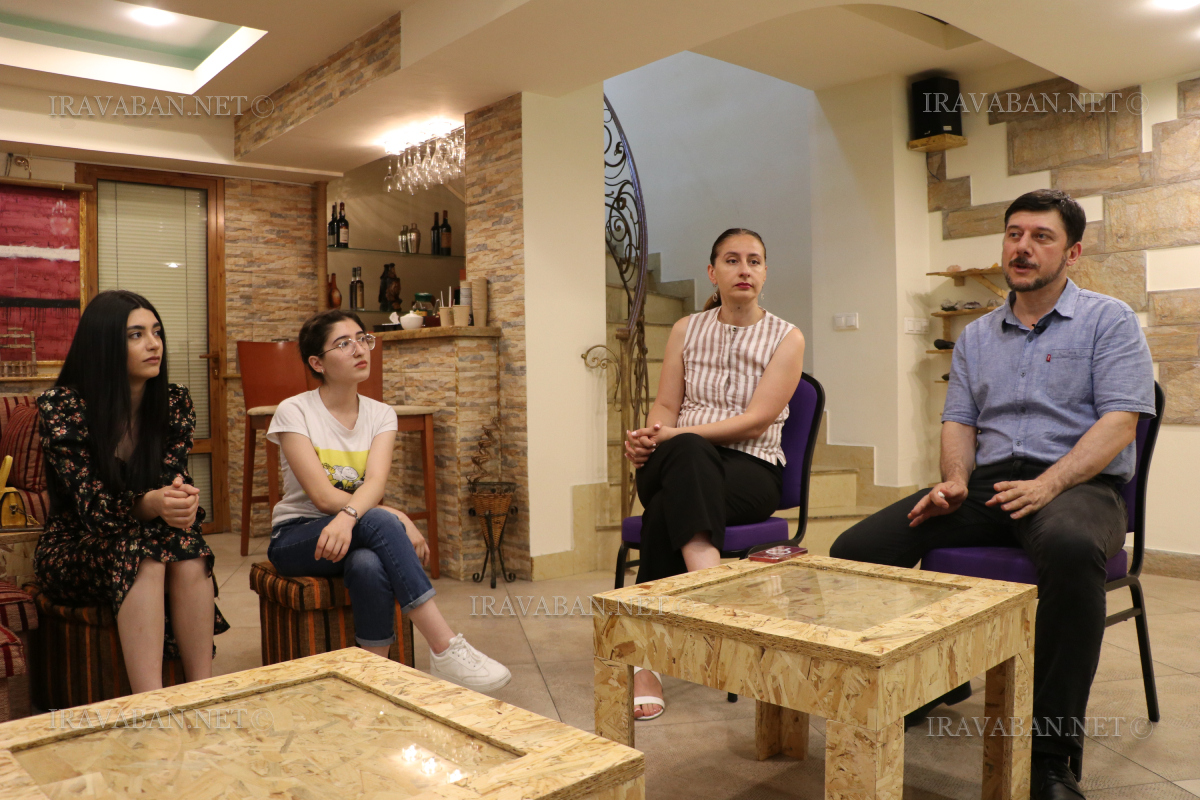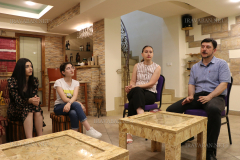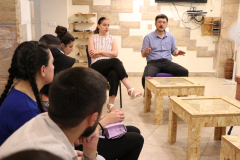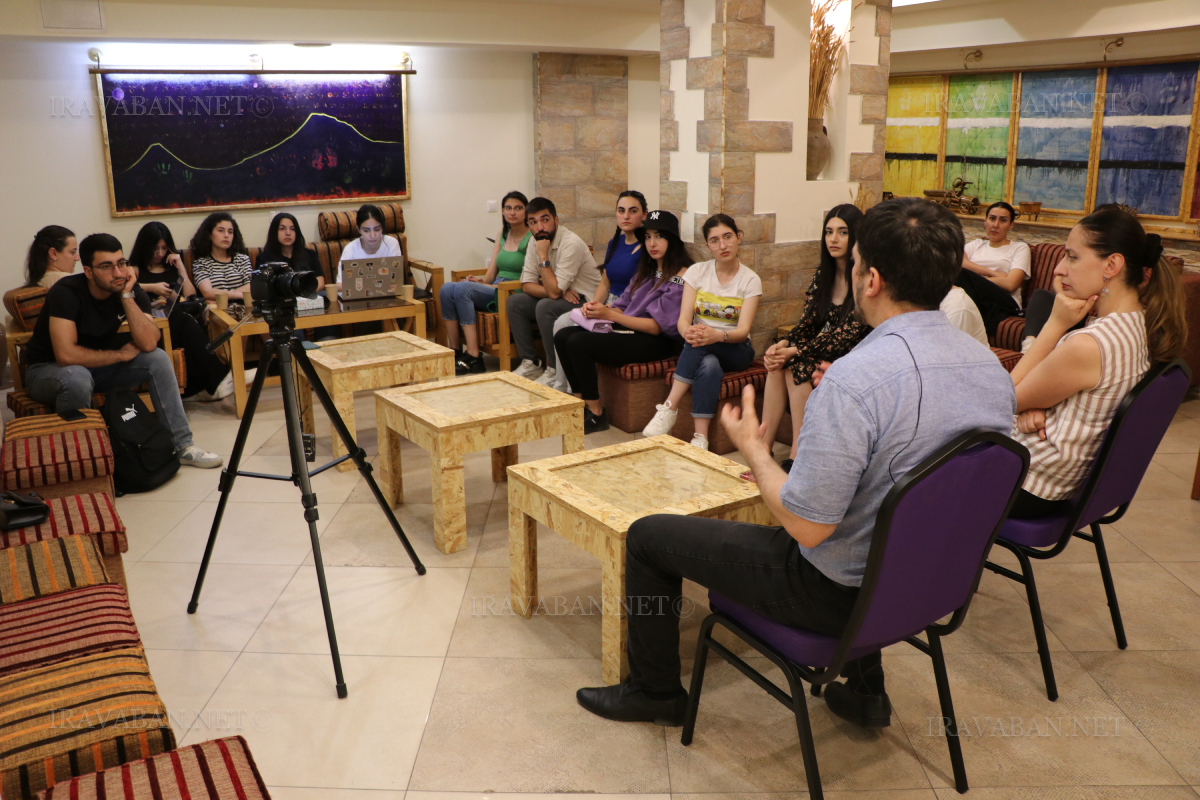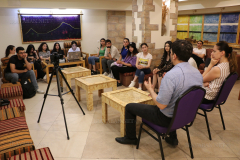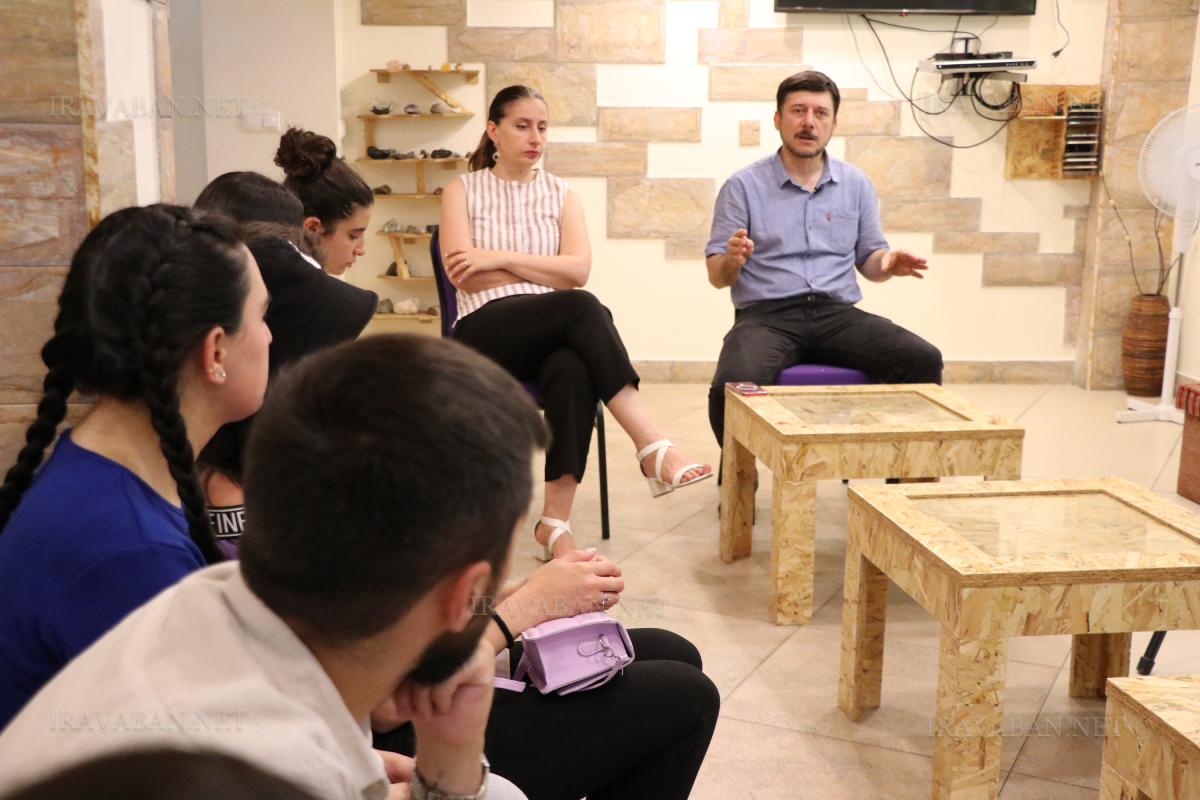
The master class for the students of the 9th stream of the Anti-Corruption School for Young Leaders, the 1st anti-corruption professional educational initiative operating in the Republic of Armenia was delivered the Co-Chair of the EU-Armenia Civil Society Platform, President of “The Europe in Law Association”, Ms. Lusine Hakobyan, and he EaP CSF National Facilitator for Armenia Mr. Hovsep Khurshudyan. The master class was about RA-EU relations, existing agreements and the significance of the Eastern Partnership for our region.
Hovsep Khurshudyan emphasized the role of the civil society and media in the fight against corruption. According to him, the civil society has huge opportunities and levers to influence the authorities, control them and support the reforms. Through the EU and the Eastern Partnership, the civil society of Armenia has the opportunity, using its leverage, to influence the government and the reforms taking place in the country.
Further the speaker presented the results of the activity of the Eastern Partnership Platform and the works done. Thus, the Platform was created by the European Union. The main goal is the rapprochement of the European Union with the 6 republics of the former USSR: Ukraine, Moldova, Azerbaijan, Armenia, Georgia and Belarus, which officially stopped its participation in the Eastern Partnership in July 2021.
The speakers also presented the great role of the EU and the US in establishing democratic institutions in our region.
Lusine Hakobyan spoke about the Comprehensive and Extended Partnership Agreement (CEPA) signed on 24 November, 2017 and the EU-Armenia Civil Society Platform provided for in that agreement, the purpose of which is to monitor and evaluate the implementation of the agreement by the RA authorities.
The field of fight against corruption is also monitored. According to Lusine Hakobyan, 6 advisory opinions will be issued this year and an annual report will be prepared.
“The first 3 of the advisory opinions will be processed. The first refers to anti-corruption education and conflict of interest, the 2nd to small and medium-sized enterprises, the 3rd to international labor standards and the harmonization of labor rights. We will present them soon and I hope we will have a serious discussion with the RA authorities,” Lusine Hakobyan said.
According to her, a large place in the annual report will be allocated to the component of democracy.
The students of the Anti-Corruption School for Young Leaders were also interested in other aspects of the RA-EU cooperation. Questions were raised regarding the Civil Society-Government Dialogue, as well as the vision of anti-corruption education.
Notably, the training in the Anti-Corruption School for Young Leaders will be organized in the following phases:
- ONLINE TRAINING PHASE, during which the students will pass a basic anti-corruption course consisting of 25 topics through the school’s online anti-corruption training platform. Those students who have completed all the knowledge test questionnaires and received the appropriate points for completing the online training will be considered completed the online training phase.
- MASTER CLASS AND PRACTICAL SKILLS DEVELOPMENT PHASE, during which students who have successfully completed the advanced stage of school will be divided into groups and each group will conduct a study, monitoring or investigation on one of the in-depth anti-corruption topics. During this phase, the work will be organized in the form of group meetings, discussions, and meetings with representatives of the sectors and other relevant bodies and organizations. Attendees will learn a range of innovative tools and gain related skills. At this stage, mentoring for groups is planned.
- PUBLIC AWARENESS PHASE, during which students who have successfully completed the practical skills development phase of the school will have the opportunity to disseminate their anti-corruption knowledge among young people through public awareness seminars.
- ADVANCED TRAINING PHASE, during which the best 15-20 participants who have achieved high results in the online training phase of the school, successfully completed the in-depth interview phase and are selected, will participate in the outreach (out of Yerevan) in-depth anti-corruption training. The in-depth training phase of the school will consist of the modules: “Anti-Corruption Advanced Training” and “Pillars of National Identity”.
- FINAL PHASE, during which the students, who have successfully completed the practical skills development and public awareness stages of the school, will present their research and public awareness results to the reputable jury and the public.
Students who have passed and successfully graduated from all five phases of the School will be awarded GRADUATION CERTIFICATES of Anti-Corruption School for Young Leaders.
“The Armenian Lawyers’ Association” NGO is organizing the Anti-Corruption School for Young Leaders in cooperation with the CSO Anti-Corruption Coalition of Armenia.
The information partner of the Anti-Corruption School for Young Leaders is Iravaban.net, independent professional news website.

